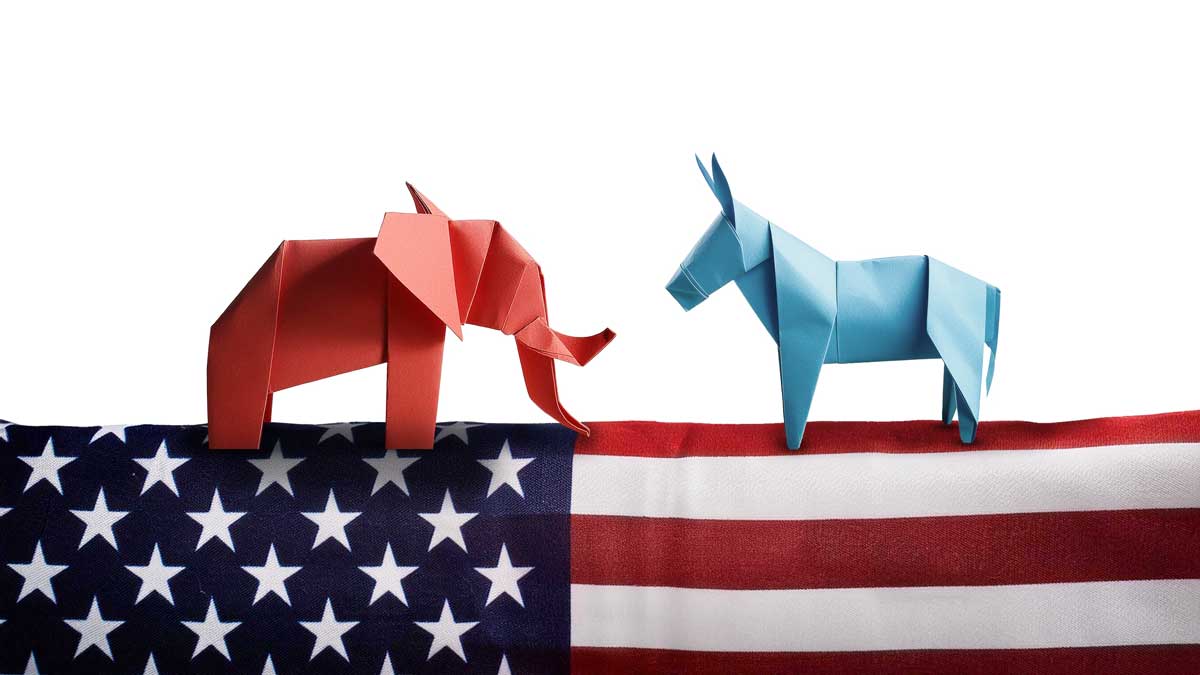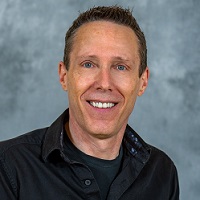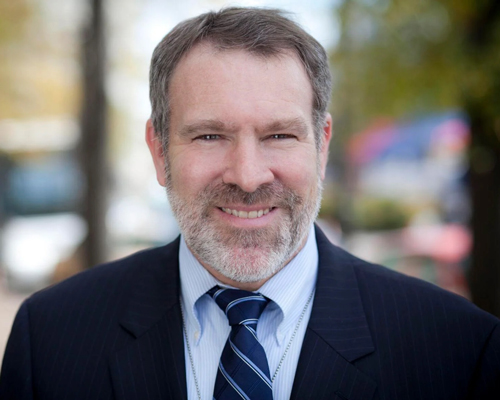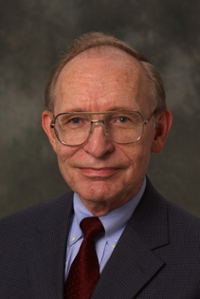
(Shutterstock)
September 27, 2024
SIU political, debate experts: Expect contrasting styles in vice presidential debate
CARBONDALE, Ill. — Vice presidential debates often generate little public interest as an undercard to presidential debates, but political and debate experts at Southern Illinois University Carbondale believe Tuesday’s (Oct. 1) meeting between Republican JD Vance and Democrat Tim Walz could be noteworthy.
Vance, an Ohio senator and Republican running mate of former President Donald Trump, and Walz, the Democratic Minnesota governor selected by Vice President Kamala Harris, square off in New York City just five weeks before the Nov. 5 general election.
While it’s hard to see how vice presidential debates can alter presidential campaigns in “any fundamental way,” John Shaw, Paul Simon Public Policy Institute director, noted that current polling shows a tight race in several states.
“In a race that may come down to literally thousands of votes in states such as Michigan, Wisconsin and Pennsylvania, almost any development can have an outsized impact,” he said.
John Jackson, a visiting professor with the institute, anticipates there will be a smaller viewing audience than the Sept. 10 presidential debate. How Vance and Walz are viewed, for Trump and Harris, can be “a revealing reflection on their decision making” since those were their first official moves in putting together a prospective government, Jackson said.
Differing personalities and political styles
 Todd Graham, professor of debate in the School of Communication Studies, believes this matchup, much like the Harris-Trump debate, will show contrasting styles but in different ways.
Todd Graham, professor of debate in the School of Communication Studies, believes this matchup, much like the Harris-Trump debate, will show contrasting styles but in different ways.
“Vance is more informed than Trump on many issues, so he should be able to talk policy where Trump was unable. Maybe he even has more details on the ‘concept’ of Trump’s health care plan,” Graham said.
“And Walz is a terrific speaker, more comfortable with us Midwesterners, who hear people talk like him every day. But he’s not as good a debater as Harris – his own words to Harris when interviewed were that he was not a very good debater,” Graham said. “Walz has a more natural and warm speaking style than Vance, but that doesn’t always translate into an effective debater.”
Walz, Graham added, “has to avoid looking like he’s in over this head, so he’s got to be prepped on all the issues well enough to pull this off. Vance is the same but with added personality. He can’t continue to be seen as weird, anti-woman, etc.”
 Kenneth Mulligan, an associate professor of political science in the School of Anthropology, Political Science and Sociology, believes this debate will be less raucous and combative than the Trump-Harris showdown.
Kenneth Mulligan, an associate professor of political science in the School of Anthropology, Political Science and Sociology, believes this debate will be less raucous and combative than the Trump-Harris showdown.
“Walz might provide a folksy Middle America contrast to Harris’ West Coast nasal chattiness,” Mulligan said. “Vance might lend a cerebral edge to Trump’s stream-of-consciousness missives. Vance has the most to gain in this debate by far, having been torn down by Harris allies from being film director Ron Howard’s Everyman to a bizarre anti-feline caricature. Walz is largely unknown and will have an opportunity to define himself.”
 Vance “has an intense, almost smoldering, personality; it seems like he could erupt at any moment. Walz has a friendly and avuncular style, but also a trenchant wit,” Shaw said.
Vance “has an intense, almost smoldering, personality; it seems like he could erupt at any moment. Walz has a friendly and avuncular style, but also a trenchant wit,” Shaw said.
“Political analysts will be watching to see if Walz can rattle Vance and force him to lose his cool. This is going to be a fun debate to watch, largely because of the hugely different political personalities of the two candidates.”
Defending policies
Both candidates will need to advance and defend their running mate’s agenda.
 “Vance will have to defend numerous Trump controversies, including the most recent imbroglio over the false story of immigrants eating dogs and cats in Springfield, Ohio, a controversy to which he contributed,” Jackson said. “Walz will need to introduce himself to the nation and fill in some of the remaining blanks on plans for a new Harris-Walz administration.”
“Vance will have to defend numerous Trump controversies, including the most recent imbroglio over the false story of immigrants eating dogs and cats in Springfield, Ohio, a controversy to which he contributed,” Jackson said. “Walz will need to introduce himself to the nation and fill in some of the remaining blanks on plans for a new Harris-Walz administration.”
Mulligan adds he expects CBS News moderators “to interject themselves less, or at least more even-handedly.”
“If they don’t, Republicans won’t invite them to participate in future debates,” he said.
Jackson and Graham each noted that vice presidential candidates must show they are ready to assume responsibility for a nation, if needed.
“This debate will be important because the vice president is the understudy to the president and can become the president in an instant, as recent events underscore,” Jackson said.
While vice presidential debates don’t usually make much of a difference, Graham said he would make Trump’s age an issue with the possibility that Vance has the chance of becoming president “very high.”
“If painted that way, this debate could be different,” Graham said. “Or people could just fall in love with Walz and use him as their excuse to vote for Harris, saving face with their social circle who might not like Harris.”
Candidate debate roles
Graham said there are three roles for vice presidential candidates in debates.
- Defend the top of the ticket by making them “look good and have good evidence that they are an effective leader with strong policies.”
- Attack the top of the other ticket.
- Demonstrate you would be ready to take over as president, if needed.
Former Vice President Mike Pence had difficulty defending Trump in his debates, and Graham said he suspects that will be an issue for Vance.
“Vance has already been doing clean-up on aisle Springfield, Ohio, but he’s making the mess worse,” Graham said. “So yeah, he’s going to have some issues in the debate. Does he tell the truth, or go with Trump’s lies? Pence knew the difference and had difficulty defending Trump’s lies. But JD Vance needs to make a choice.”
The key points Vance needs to make are that “I’m not weird and can be trusted,” while Walz’s points are “Yes, you are, and no, you cannot,” Graham said. “It’s as simple as that. That’s the debate.”
Media availability
Todd Graham is professor of debate in SIU’s School of Communication Studies, where his debate teams have won five national titles. He has been analyzing presidential debates for more than 20 years and is a regular contributor and regular debate expert for CNN and CNN Opinion. He can be reached at 314-495-7278 or at tgraham@siu.edu or toddgraham101@gmail.com.
John Jackson is a visiting professor at SIU Carbondale’s Paul Simon Public Policy Institute and has more than four decades of political expertise and research in presidential politics, campaigns and elections. He can be reached at 618-303-1240 or jsjacson@siu.edu.
Kenneth Mulligan is an associate professor of political science in SIU’s School of Anthropology, Political Science and Sociology. His research and teaching involve American political behavior, media and politics, and public opinion. He can be reached at 618-201-9634 and kmulliga@siu.edu.
John Shaw, director, Paul Simon Public Policy Institute, spent 26 years in Washington, D.C., covering Congress and economic issues for Market News International before his arrival at SIU Carbondale in 2018. He has been a guest on the PBS NewsHour and C-SPAN. He can be reached at 618-453-4009 or john.shaw@siu.edu.
